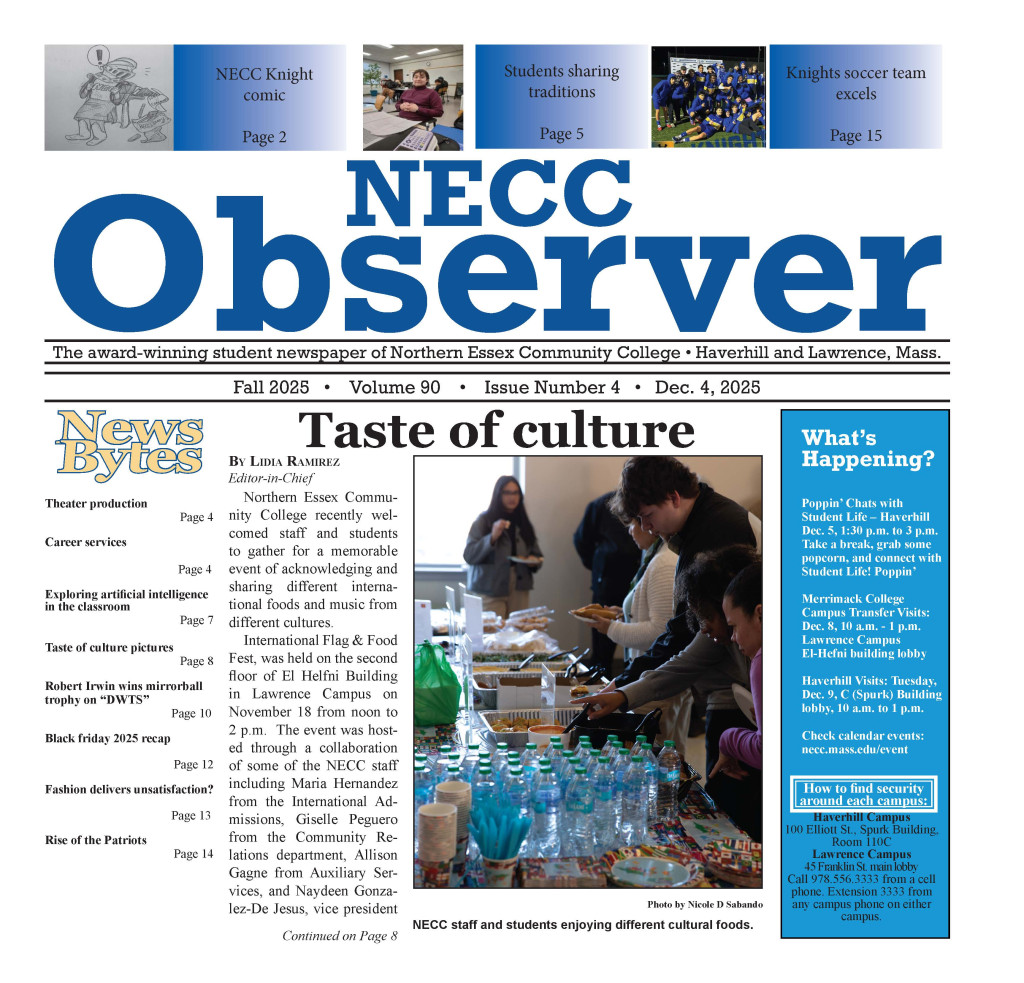As Halloween begins this upcoming holiday season, many celebratory plans have been negatively affected (or even canceled) due to the COVID-19 pandemic. Dressing-up in costumes for communal “Trick-or-Treating” and attending chilling “Haunted Houses” are only a couple among the countless cancelled festivities of this beloved Holiday, causing a sense of despair among many —especially within the NECC community. Despite hardship, students have found several safe, alternative ways in which to spend and appreciate their Halloween of 2020.
Jeremy Isabelle, a journalism and communications major whose favorite candy is Almond Joy, typically loves visiting the bloodcurdling haunted houses at Canobie Lake Park — enjoying the thrill of being chased by loud chainsaws.
Isabelle reminisced on a childhood memory of the gothic, Victorian-style house near the street of his home, of which was always particularly frightening during fall season.
This year, Isabelle will be pumpkin carving in attempt to keep alive the holiday spirit. When asked if he feels that COVID-19 will cause a long-term effect on the celebration of Halloween, Isabelle stated, “I feel bad for my sister, she’s only a sophomore in high school — and for future generations.” Isabelle believes that social distancing will “encourage future people to be more conscious of personal space.”
Bryan Fernandez, a journalism and communications major whose favorite candy is gummy worms, proclaimed his love for Halloween while disclosing his annual ritual of watching his three favorite scary movies: “Monster’s House”, “Cabin in the Woods”, and “The Nightmare Before Christmas.”
Fernandez normally spends his Halloween dressing-up in costumes and partying with friends. This year, he will instead be galivanting social-distanced style — a “Netflix Party” over group facetime.
Fernandez and his friends plan to simultaneously watch scary movies on Netflix while using technology to collectively practice social distancing. As multiple households interacting with each other could potentially increase the risk of virus spread, Fernandez says that he doesn’t think “trick-or-treating” will come back for a long time. “It sucks for the children—It gives kids their first taste of independence. Halloween is an important part of childhood,” said Fernandez.
Although many traditional Halloween activities are at high-risk for coronavirus spread, there are still various others that can be enjoyable alternatives.
Alternative activities such as pumpkin carving, scary-movie marathons, virtual Halloween costume contests, and/or having a family “Haunted-House-Candy-Scavenger Hunt”, are all ways in which to celebrate safely. Both Isabelle and Fernandez have remained positive in discovering new ways to enjoy the holiday. How will you spend this spooky season?

